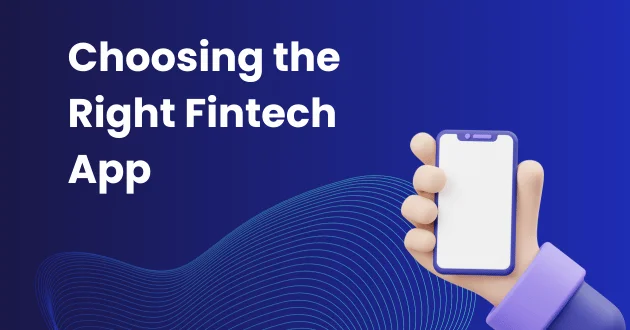
In today’s digital age, the financial landscape has drastically changed with the emergence of fintech apps. These innovative applications have revolutionized the way we handle our finances, offering convenient and efficient solutions for various financial needs. In this comprehensive guide, we will delve into the world of fintech apps, exploring their definition, functions, and impact on the financial sector. We will discuss the top fintech apps in the market and how they are transforming the way we manage our money. Whether you are a tech-savvy individual looking to optimize your financial management or a business owner seeking to streamline your company’s financial processes, this guide will provide you with a thorough understanding of fintech apps and their role in shaping the future of finance. So, let’s dive in and discover the world of fintech apps together.
- Definition of Fintech: Exploring the Concept and Its Sign
- Key Features of Fintech Apps: Highlighting the Must-Have Functionalities
- Types of Fintech Apps: Examining Different Categories and Use Cases
- Benefits of Fintech Apps: How They Are Revolutionizing Financial Services
- Security and Privacy: Addressing Concerns Surrounding Fintech App Usage
- Popular Fintech Apps: Showcasing Success Stories and User Experiences
- Future of Fintech Apps: Predicting Trends and Innovations
- Choosing the Right Fintech App: Factors to Consider for Users
- Conclusion
- Frequently Asked Questions
Definition of Fintech: Exploring the Concept and Its Sign
Fintech, short for financial technology, is a term that encompasses the use of technology to improve and streamline financial services. It refers to any innovation or application that leverages technology to provide efficient and innovative financial solutions to individuals and businesses. Fintech has revolutionized the way we access and manage our finances, offering a wide range of services such as mobile banking, peer-to-peer lending, digital wallets, robo-advisors, and payment platforms. The impact of fintech is significant, as it has transformed traditional financial systems by increasing accessibility, speed, convenience, and affordability. This has not only disrupted traditional banking and financial institutions but has also empowered individuals to have more control over their financial lives. As the digital landscape continues to evolve, the role of fintech apps is becoming increasingly prominent, shaping the future of finance and driving financial inclusion on a global scale.
Key Features of Fintech Apps: Highlighting the Must-Have Functionalities
Fintech apps have become essential tools for individuals and businesses looking to embrace the digital revolution in finance. These apps offer a range of key features that make managing finances more convenient and efficient. One must-have functionality of a fintech app is seamless integration with multiple financial accounts. This allows users to conveniently view and manage all their accounts in one place, eliminating the need to switch between different platforms. Another crucial feature is real-time transaction tracking, providing users with instant updates on their financial activities.
Secure and easy-to-use payment options, such as biometric authentication and one-click transactions, are vital for a smooth user experience. Personalized financial insights and budgeting tools are also important, empowering users to make informed financial decisions and stay on track with their financial goals. Overall, fintech apps with these essential functionalities are transforming the way we manage our finances, offering convenience, security, and empowerment in navigating the digital financial landscape.
Types of Fintech Apps: Examining Different Categories and Use Cases
Fintech apps come in various categories, each catering to specific financial needs and use cases. One category is mobile banking apps, which provide users with the ability to perform banking tasks such as checking account balances, transferring funds, and paying bills, all from the convenience of their mobile devices. Another category is investment apps, which allow users to easily invest in stocks, mutual funds, and other financial instruments, often with user-friendly interfaces and educational resources. Peer-to-peer payment apps enable users to send and receive money from friends and family instantly, eliminating the need for cash or checks. Budgeting and expense tracking apps help individuals manage their personal finances, providing insights, categorizing expenses, and setting financial goals. Lending and crowdfunding apps offer alternative financing options, connecting borrowers with lenders or facilitating crowdfunding campaigns for businesses or creative projects.
Benefits of Fintech Apps: How They Are Revolutionizing Financial Services
Fintech apps have emerged as a game-changer in the financial services industry, revolutionizing the way people manage their money. These apps offer a multitude of benefits that are reshaping the traditional banking landscape.
Fintech apps provide convenience and accessibility. With just a few taps on a smartphone, users can perform a wide range of financial transactions anytime, anywhere. Whether it’s checking account balances, transferring funds, or making payments, users no longer have to visit physical bank branches or wait in long queues.
Fintech apps offer enhanced security measures. These apps often incorporate advanced encryption techniques and multi-factor authentication, ensuring that sensitive financial information remains secure. Fintech apps provide real-time updates and notifications, allowing users to stay on top of their finances and make informed decisions.

Security and Privacy: Addressing Concerns Surrounding Fintech App Usage
In an era where technology has become deeply embedded in our daily lives, concerns surrounding security and privacy have become increasingly prominent. This holds true for fintech apps as well. As users entrust these apps with their financial information, it is crucial to address the potential risks and take appropriate measures to safeguard sensitive data. Fintech app developers understand the importance of maintaining robust security protocols and employ various measures to protect user privacy. This includes utilizing encryption technology to secure data transmission and storage, implementing stringent authentication processes, and regularly updating security features to address emerging threats.
It is also essential for users to play an active role in ensuring their own security. This can be done by regularly updating app passwords, being cautious of phishing attempts or suspicious links, and monitoring account activity for any unauthorized transactions. By remaining vigilant and informed about the security features and best practices of fintech apps, users can confidently embrace the convenience they offer while prioritizing the protection of their personal and financial information.
Popular Fintech Apps: Showcasing Success Stories and User Experiences
As the fintech industry continues to grow, numerous fintech apps have emerged, revolutionizing the way individuals manage their finances. These popular apps offer a range of features and services that cater to different financial needs and goals.
For instance, apps like Mint and Personal Capital focus on budgeting and expense tracking, providing users with tools to monitor their spending habits and set financial goals. Other apps like PayPal and Venmo have transformed the way we make payments, allowing for convenient and secure transactions with just a few taps on our smartphones.
Furthermore, investment apps such as Robinhood and Acorns have made it easier for individuals to enter the world of investing and grow their wealth. The success of these fintech apps can be attributed not only to their functional capabilities but also to the positive user experiences they deliver. Many users have praised the intuitive interfaces, quick response times, and seamless integration with other financial platforms.
Future of Fintech Apps: Predicting Trends and Innovations
The future of fintech apps holds a myriad of exciting trends and innovations that will shape the way we manage our finances. One key trend to watch out for is the integration of artificial intelligence (AI) and machine learning (ML) capabilities. Fintech apps will leverage these technologies to provide personalized financial advice, automated investment strategies, and enhanced fraud detection systems. We can expect to see the rise of open banking, where fintech apps will have access to a broader range of financial data, enabling them to offer more comprehensive and tailored services to users. The use of blockchain technology is expected to gain prominence in the fintech industry, enabling secure and transparent transactions while reducing costs and inefficiencies.

Choosing the Right Fintech App: Factors to Consider for Users
When considering which fintech app to choose, there are several factors that users should take into account.
Firstly, it’s important to evaluate the app’s security measures. Given the sensitive nature of financial information, a robust security system is essential to protect personal data and prevent unauthorized access. Users should look for features such as encryption protocols, multi-factor authentication, and regular security updates.
Secondly, usability and user experience play a crucial role in the effectiveness of a fintech app. A well-designed and intuitive interface can simplify financial management tasks and make the app more user-friendly. It’s also worth considering the range of features offered by the app, such as budgeting tools, investment options, and access to financial education resources.
Lastly, users should assess the app’s customer support and reliability. Prompt and efficient customer service is vital in resolving any issues or concerns that may arise during app usage. Checking reviews and ratings from other users can provide insights into the app’s reliability and performance.
Conclusion
Fintech apps have revolutionized how we manage our finances, providing easy and convenient access to financial services. Whether you are an individual looking to track your spending or a business owner in need of efficient payment solutions, fintech apps offer a range of services to meet your needs. As technology continues to advance, we can expect to see even more innovative and user-friendly fintech apps in the future, making managing our finances simpler and more accessible for all. It is clear that fintech apps are here to stay, and understanding their features and benefits can greatly improve our financial management.


